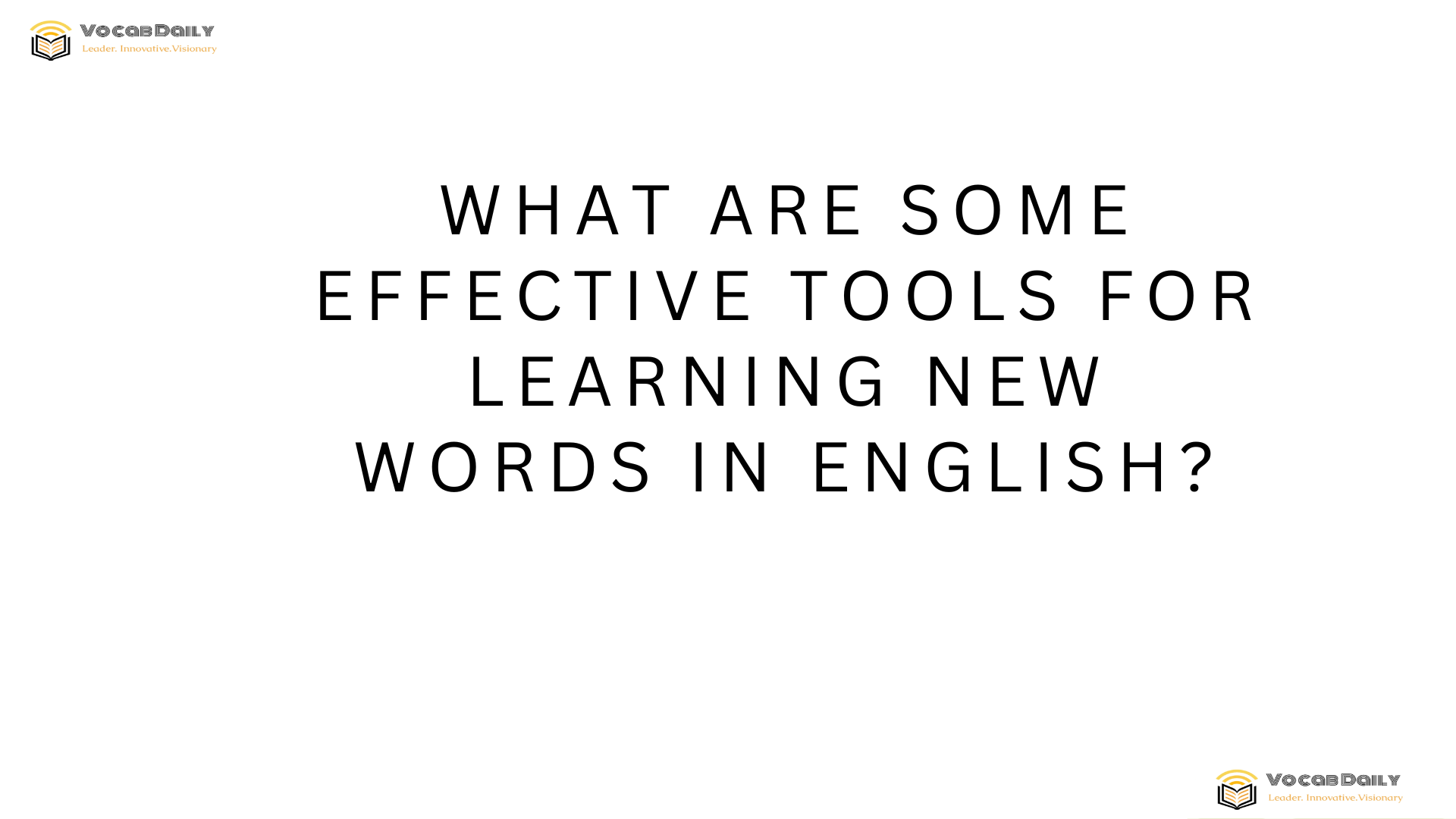What are some effective tools for learning new words in English
Mobile Apps for Vocabulary Building
One of the most convenient and engaging ways to learn new English words is through mobile applications. Language learning apps often include vocabulary-building games, flashcards, and quizzes that make memorization easier and more fun. Apps like Duolingo, Memrise, and Anki allow users to learn words in context, which helps with retention and proper usage. Additionally, many apps use spaced repetition systems (SRS) to ensure that you review words just before you might forget them, making learning efficient.
Online Dictionaries and Thesauruses
Reliable online dictionaries and thesauruses are essential tools for anyone looking to expand their English vocabulary. Websites such as Merriam-Webster, Cambridge Dictionary, and Oxford Learner’s Dictionaries offer detailed definitions, pronunciation guides, and example sentences. Using these resources regularly can help learners understand the nuances and correct contexts for new words. Thesauruses also introduce synonyms and antonyms, which deepen understanding and help avoid repetitive language.
Flashcards and Spaced Repetition Techniques
Flashcards have long been a staple in learning new vocabulary, and digital flashcards have perfected this method for the digital age. Using flashcard apps like Anki or Quizlet, learners can create custom cards with new words, definitions, and example sentences. These tools often incorporate spaced repetition algorithms, which optimize review timing to improve long-term retention. Creating your own flashcards can also aid memorization because the process reinforces the learning.
Reading Books and Articles
Reading regularly is one of the most natural ways to acquire new English vocabulary. Books, articles, newspapers, and blogs expose learners to words used in various contexts, helping them understand meanings more deeply. Fiction and non-fiction both have their unique benefits: fiction often provides emotional and narrative context, while non-fiction tends to introduce specialized vocabulary. Keeping a small notebook or using a digital note-taking app to jot down unfamiliar words while reading can ensure active learning.
Watching English Movies and TV Shows
Visual and auditory learning through movies and TV shows offers a practical way to catch new vocabulary in natural dialogue. Watching shows with subtitles can help learners connect the spoken word with its written form. This immersive tool helps with pronunciation, intonation, and acquiring idiomatic expressions that are commonly used by native speakers. Series with clear language and slower speech, such as educational programs or dramas, are particularly beneficial for learners.
Vocabulary Books and Workbooks
Traditional vocabulary books and workbooks remain popular for a reason. Many learners appreciate the structured approach these resources provide to systematically build vocabulary. Books like “Word Power Made Easy” or themed vocabulary workbooks for various proficiency levels allow learners to focus on specific categories, such as business English or everyday phrases. These materials often contain exercises, puzzles, and quizzes to reinforce new words.
Interactive Language Learning Websites
Interactive websites offer another engaging way to learn new words. Platforms like Vocabulary.com and BBC Learning English offer interactive quizzes, word games, and practical tips for vocabulary expansion. These websites often tailor content based on the learner’s proficiency level and interests, making vocabulary learning more personalized. The immediate feedback and explanations provided by these tools also help clarify word meanings and usage.
Using Vocabulary Notebooks or Journals
Keeping a vocabulary notebook or journal is a practical and effective tool for learners who prefer writing by hand. By recording new words, their definitions, example sentences, and even personal notes on usage, learners create a personalized vocabulary resource. This active involvement in writing helps reinforce learning. Reviewing the notebook regularly and trying to use new words in daily conversations or writing exercises can also improve retention and confidence.
Practice Through Writing and Speaking
Actively using new vocabulary in writing and speaking is essential for mastery. Writing essays, journal entries, or creative stories forces you to incorporate new words naturally. Similarly, practicing speaking with friends, tutors, or language exchange partners allows learners to experiment with vocabulary and receive feedback. Techniques like language shadowing and role-playing dialogues also boost vocabulary usage in conversational contexts, making learning more practical.
Word of the Day Services
Subscribing to “Word of the Day” emails or notifications is an easy way to learn new vocabulary daily without feeling overwhelmed. These services introduce one new word each day, often with pronunciation tips, definitions, and example sentences. Websites like Vocabulary.com, Merriam-Webster, and Oxford English Dictionary offer this feature free of charge. Over time, this consistent exposure to new words helps build a substantial vocabulary foundation.
Engagement in Online Forums and Social Media
Participating in English-speaking online forums, discussion groups, and social media platforms provides a dynamic environment for vocabulary learning. Platforms like Reddit, Quora, or language learning groups on Facebook allow users to read authentic posts and comments, often introducing colloquial language and slang words. Engaging by asking questions, commenting, or sharing stories encourages practical use of new words and phrases in a social context.
Using Mnemonic Devices
Mnemonic devices help learners remember new words more easily by connecting them to memorable images, stories, or acronyms. For example, to remember the word “gregarious,” you might imagine Greg as a friendly and sociable person at a party. Techniques like this encourage the brain to create associations that stick better than rote memorization. Many vocabulary-building courses and books also teach mnemonic strategies for more challenging words.
Also check out VocabDaily workbook collections.

Leave a Reply